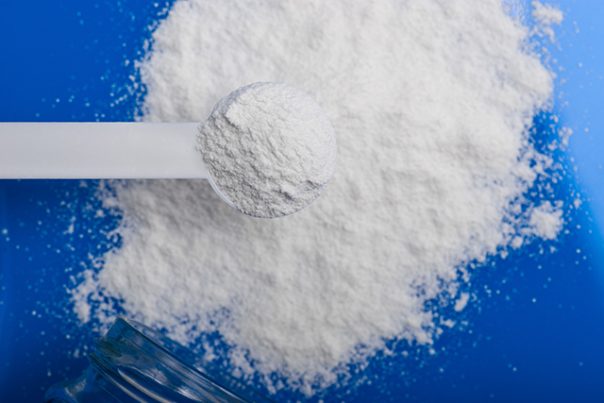- Poison.news
- Chemicals.news
- Nutrients.news
- Toxins.news
Calcium acetate sources, health risks
Thursday, October 19, 2017 by Earl Garcia
http://www.naturalpedia.com/calcium-acetate-sources-health-risks.html

Calcium acetate is a type of calcium salt that is traditionally used to control high phosphate levels in patients suffering from chronic renal failure. According to an article posted on the Health Line website, the chemical works by binding phosphate in the digestive system and usually comes in oral capsules and oral solutions. However, the article cautions that calcium acetate may have negative interactions with other types of medications.
The entry discourages taking calcium acetate with any drugs or products containing calcium such as certain antacids and vitamin supplements. The article also warns against taking calcium acetate with various other drugs such as digoxin, phenytoin, and strontium 89 chloride as well as sucralfate, tetracycline, and quinolone antibiotics and thyroid hormones.
An article published on the Everyday Health website also suggests avoiding certain medications after taking calcium acetate. The article stresses that antibiotic drugs –such as ciprofloxacin, moxifloxacin or levofloxacin — should be avoided six hours after taking calcium acetate. Likewise, the antibiotic drugs doxycycline, minocycline, or tetracycline should be avoided for up to an hour after taking the calcium salt. Levothyroxine is not to be taken four hours after taking calcium acetate, the article adds.

Harmful effects that can be caused by calcium acetate
Calcium acetate is known to cause detrimental effects on the body whether it is inhaled, ingested, or exposed to the skin. The toxic chemical is known to trigger sore throat and coughing fits when inhaled. An article published on the In Chem website recommends using local exhaust or breathing protection implements in order to prevent inhalation and the dispersion of the chemical. The entry also suggests taking people who suffer from calcium acetate exposure to areas with fresh air and making them rest.
Calcium acetate may adversely impact skin health as well. Exposure to the chemical is known to cause skin inflammation and trigger the onset of allergic reactions such as hives and rashes. Swelling of the face, lips, or tongue may also occur following calcium acetate exposure. It is advisable to wash the affected area with soap and water in order to mitigate the risk of skin conditions. Likewise, calcium acetate exposure may cause redness and pain in the eyes. Experts recommend washing the eyes with water for a few minutes and seeking medical assistance following exposure.
In addition, the toxic chemical is found to particularly target the body’s metabolism and digestive tract. Calcium acetate may cause various digestive issues such as nausea, vomiting, constipation and diarrhea. Exposure to the harmful compound is shown to cause hyperglycemia or high blood sugar levels as well. A Drugs.com article also cautions that the harmful chemical targets the central nervous system as well. According to the article, calcium acetate exposure may result in dizziness, confusion, and delirium as well as more serious medical events such as stupor or coma.
Calcium acetate is known to trigger adverse effects on the urinary tract as well. The compound is shown to cause pain in the lower back or side and may even induce painful urination. The chemical is also found to cause bleeding during urination. Likewise, calcium acetate exposure may result in soft tissue calcification, exhaustion and muscle weakness. Other conditions associated with calcium acetate exposure include:
- Abdominal or stomach pain
- Depression
- Dry mouth
- Headache
- Incoherent speech
- Increased urination
- Loss of appetite
- Metallic taste
- Thirst
- Unusual tiredness
- Weight loss
Body systems harmed by calcium acetate
Calcium acetate is particularly detrimental to both the respiratory system and the digestive tract. Likewise, the toxic chemical targets the urinary tract, the muscles and the central nervous system. The harmful compound is also known to cause adverse effects on both the skin and the eyes.
Where to learn more
Summary
Calcium acetate may cause various respiratory conditions and digestive issues.
Calcium acetate may trigger urinary problems, skin diseases, and eye conditions.
Calcium acetate exposure may result in hyperglycemia, depression, and coma.
Calcium acetate is detrimental to both the respiratory system and the digestive tract.
Calcium acetate affects the urinary tract, the muscles and the central nervous system.
Sources include:
Tagged Under: Tags: Calcium acetate






